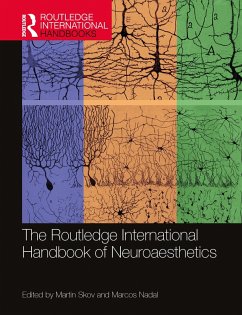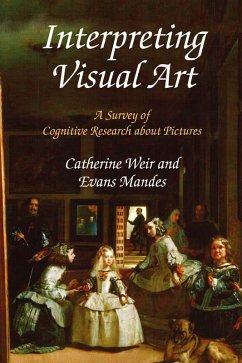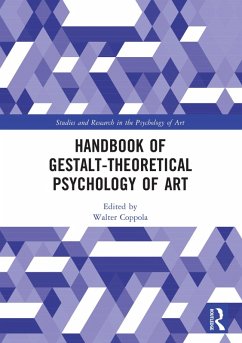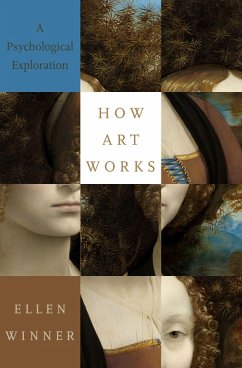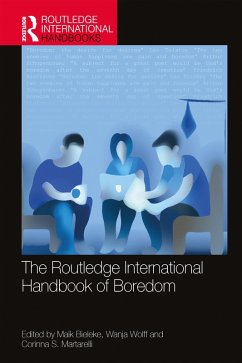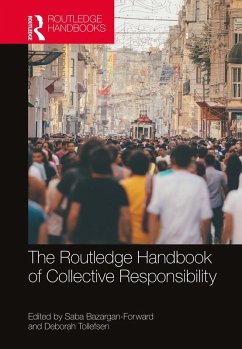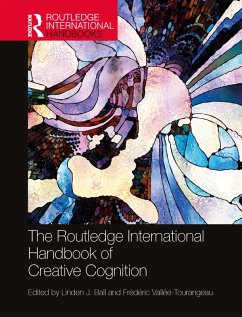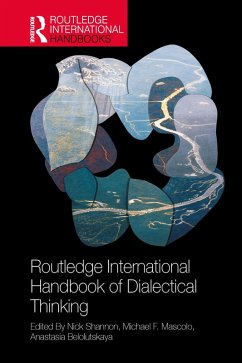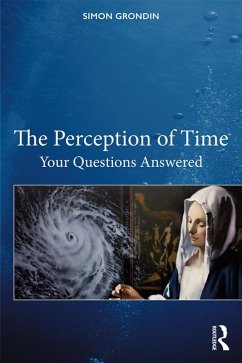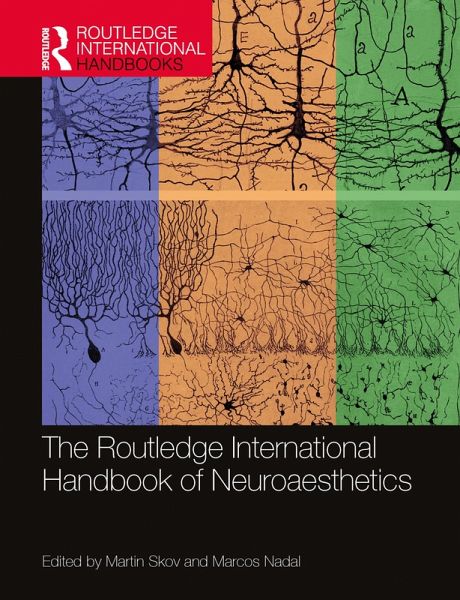
The Routledge International Handbook of Neuroaesthetics (eBook, PDF)
Versandkostenfrei!
Sofort per Download lieferbar
43,95 €
inkl. MwSt.
Weitere Ausgaben:

PAYBACK Punkte
22 °P sammeln!
The Routledge International Handbook of Neuroaesthetics is an authoritative reference work that provides the reader with a wide-ranging introduction to this exciting new scientific discipline. The book brings together leading international academics to offer a well-balanced overview of this burgeoning field while addressing two questions central to the field: how the brain computes aesthetic appreciation for sensory objects and how art is created and experienced.The editors, Martin Skov and Marcos Nadal, have compiled a neuroscientific, physiological, and psychological overview of the systems...
The Routledge International Handbook of Neuroaesthetics is an authoritative reference work that provides the reader with a wide-ranging introduction to this exciting new scientific discipline. The book brings together leading international academics to offer a well-balanced overview of this burgeoning field while addressing two questions central to the field: how the brain computes aesthetic appreciation for sensory objects and how art is created and experienced.
The editors, Martin Skov and Marcos Nadal, have compiled a neuroscientific, physiological, and psychological overview of the systems underlying the evaluation of sensory objects and aesthetic appreciation. Covering a variety of art forms mediated by vision, audition, movement, and language, the handbook puts forward a critical review of the current research to explain how and why perceptual and emotional processes are essential for art production. The work also unravels the interaction of art with expectations, experience and knowledge and the modulation of artistic appreciation through social and contextual settings, eventually bringing to light the potential of art to influence mental states, health, and well-being. The concepts are presented through research on the neural processes enabling artistic creativity, artistic expertise, and the evolution of symbolic cognition.
This handbook is a compelling read for anyone interested in making a first venture into this exciting new area of study and is best suited for students and researchers in the fields of neuroaesthetics, perceptual learning, and cognitive psychology.
The editors, Martin Skov and Marcos Nadal, have compiled a neuroscientific, physiological, and psychological overview of the systems underlying the evaluation of sensory objects and aesthetic appreciation. Covering a variety of art forms mediated by vision, audition, movement, and language, the handbook puts forward a critical review of the current research to explain how and why perceptual and emotional processes are essential for art production. The work also unravels the interaction of art with expectations, experience and knowledge and the modulation of artistic appreciation through social and contextual settings, eventually bringing to light the potential of art to influence mental states, health, and well-being. The concepts are presented through research on the neural processes enabling artistic creativity, artistic expertise, and the evolution of symbolic cognition.
This handbook is a compelling read for anyone interested in making a first venture into this exciting new area of study and is best suited for students and researchers in the fields of neuroaesthetics, perceptual learning, and cognitive psychology.
Dieser Download kann aus rechtlichen Gründen nur mit Rechnungsadresse in A, B, BG, CY, CZ, D, DK, EW, E, FIN, F, GR, HR, H, IRL, I, LT, L, LR, M, NL, PL, P, R, S, SLO, SK ausgeliefert werden.




